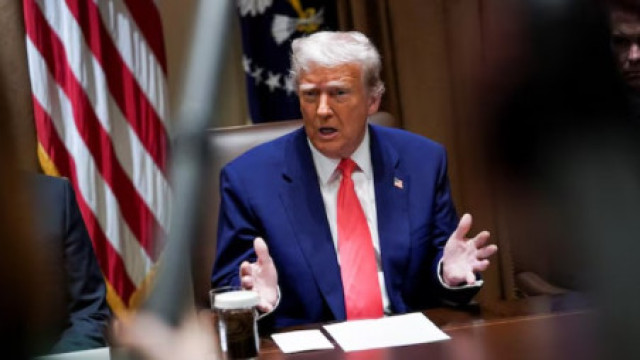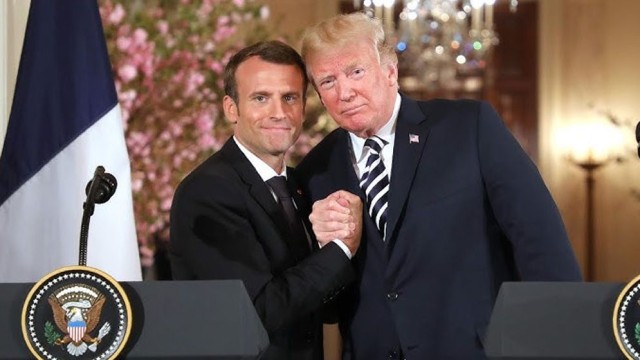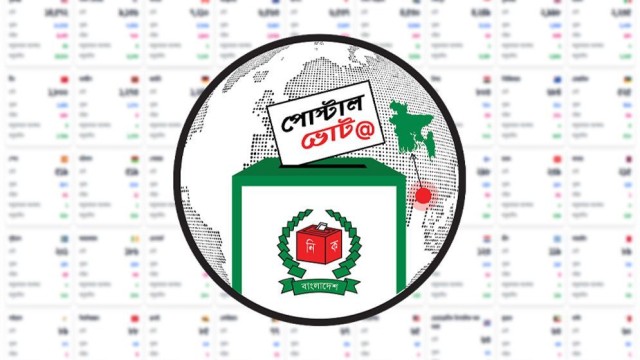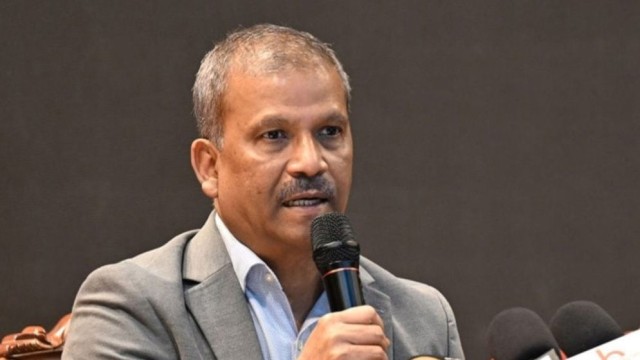WASHINGTON, MAY 25 (V7N) – President Donald Trump on Friday escalated his trade rhetoric, threatening a sweeping 50% tax on all imports from the European Union and a 25% tariff on all smartphones sold in the U.S. unless they are manufactured domestically. These pronouncements, delivered via social media, underscore the President's capacity to roil the global economy with sudden policy shifts, even as his existing tariffs have yet to yield promised trade deals or a significant return of manufacturing jobs to the U.S.
Trump expressed frustration with the pace of trade talks with the EU, which has proposed eliminating tariffs altogether, a stance at odds with the President's insistence on a baseline 10% import tax. "Our discussions with them are going nowhere!" Trump posted on Truth Social, recommending a "straight 50% Tariff on the European Union, starting on June 1, 2025." He added, "There is no Tariff if the product is built or manufactured in the United States."
Later, speaking from the Oval Office, Trump asserted he was "not looking for a deal" with the EU, suggesting a delay in tariffs might only occur if more companies significantly invested in the U.S.
In response, the EU's top trade official, Maros Sefcovic, posted on X that he had spoken with U.S. Trade Representative Jamieson Greer and Commerce Secretary Howard Lutnick. "The EU's fully engaged, committed to securing a deal that works for both," Sefcovic stated. "EU-US trade is unmatched & must be guided by mutual respect, not threats. We stand ready to defend our interests."
The President's threats extended to the smartphone industry, with a direct warning to Apple CEO Tim Cook. Trump stated he had "long ago informed Tim Cook of Apple that I expect their iPhone’s that will be sold in the United States of America will be manufactured and built in the United States, not India, or anyplace else." He added, "If that is not the case, a Tariff of at least 25% must be paid by Apple to the U.S." He later clarified that this tariff would apply to all smartphones made abroad, including those by Samsung, and could be implemented by the end of June.
This stance marks a notable shift in Trump's public messaging on tariffs, as he now implies the companies themselves would bear the cost, contradicting previous claims that foreign countries would absorb the import taxes. Economists generally agree that importers pay tariffs, and these costs are often passed on to consumers. Following Trump's earlier tariffs on China, Apple CEO Tim Cook indicated that most iPhones sold in the U.S. this fiscal quarter would come from India, with other devices from Vietnam. Bank analysts have estimated that a $1,200 iPhone, if made in America, could see its price jump to between $1,500 and $3,500.
U.S. stocks, particularly the S&P 500 index, experienced a downturn of approximately 0.67% after Trump's social media postings, reflecting market sensitivity to his trade pronouncements.
U.S. Treasury Secretary Scott Bessent attempted to clarify the administration's position on Fox News, suggesting the EU faces a "collective action problem" due to its unified representation in Brussels, which he claimed meant member states were not fully aware of ongoing negotiations. Bessent also confirmed discussions with Apple CEO Tim Cook this week, with the goal of encouraging Apple to bring more of its computer chip supply chain to the U.S.
The core of Trump's grievances with the EU revolves around a "totally unacceptable" trade deficit in goods, which he blames on what he perceives as unfair trade practices, VAT taxes, and lawsuits against American companies. However, the EU's executive commission argues that when both goods and services are considered, trade with the U.S. is roughly balanced, with the U.S. running a services trade surplus that offsets some of the goods deficit, leaving an imbalance of 48 billion euros ($54 billion).
German Foreign Minister Johann Wadephul expressed his country's full support for the EU Commission in defending access to the American market. "I think such tariffs help no one, but would just lead to economic development in both markets suffering," Wadephul stated, emphasizing the preference for negotiations.
Economist Marcel Fratzscher of the German Institute for Economic Research criticized the EU and Germany's strategy as a "total failure," suggesting that Trump views Europe's wavering as a weakness. Mary Lovely, a senior fellow at the Peterson Institute for International Economics, viewed the 50% tariffs as likely a "negotiating ploy," but warned that such an approach makes the U.S. appear an "unreliable trading partner" that operates on "whim, not on rule of law."
Trump's relationship with Apple has been inconsistent. Despite Apple's pledge in February to invest $500 billion domestically for AI development, Trump publicly criticized the company last week in Qatar for building products in India for sale in the U.S. Analysts remain skeptical that Apple can quickly relocate its complex supply chains to the U.S., a move that would entail significant costs and time. Ben Wood, chief analyst at CCS Insight, highlighted "the unpredictable nature of the current U.S. administration" as a major challenge for companies like Apple in long-term planning.
END/SMA/RH/































Comment: